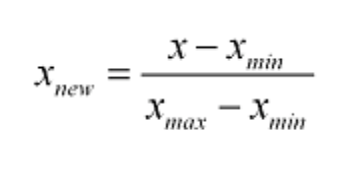Introduction
Having healthy teeth plays a huge role in maintaining our overall health. It's not only about preventing dental cavities and gum disease, as having healthy teeth also plays a significant role in shaping overall appearance.
While there are individual measures that we can take to improve our oral health, such as reducing sugar and alcohol consumption, governments are responsible for ensuring water fluoridation measures and adequate access to dental facilities. In recognition of World Oral Health Day 2020, Qunomedical has created a European ranking of the countries with the healthiest teeth. The study includes 24 countries in Europe, as well as the UK and Switzerland, and analyses them based on seven factors that determine our dental health. These include lifestyle choices, such as consumption of sugar and alcohol, as well as government investments, such as dental facilities and fluoridation measures.
Legend
Dental Conditions
Average number of teeth that have been decayed, lost (missing) or filled-in at the age of 12
Dental Facilities
Dentists per 100,000 people
Dental Schools
Negative Environmental Factors
Alcohol Consumption
Smoking Prevalence
Sugar Consumption
Index
Infogram was not loaded due to privacy settings.
Please check your cookie preferences and reload the page.
Results
A detailed table with all the factors can be downloaded here. Italy tops the ranking. Despite ranking seventh in the Decay-Missing-Filled Teeth Index (DMFT Index), Italy has the highest number of dental facilities - 34 - and the lowest cases of alcohol, sugar, and cigarette consumption. Germany ranks second behind Italy in the index. Germans consume more sugar and alcohol and have a higher proportion of smokers than Italians. For the category of Dental Conditions, Germany and the UK secure joint second place in the DMFT index, with only 0.5 teeth on average being treated for decay at the age of 12. The UK secures sixth place overall in the ranking largely thanks to a high number of dental schools, whole 16 - more than France, Belgium, and Sweden. Despite a widespread reputation for excessive alcohol consumption, the index reveals that alcohol intake (11,4 litres per year) in the UK is actually lower than many other European countries - including Germany (13,4 litres per year). Switzerland, the Netherlands, and Austria all rank in the top 10 in the DMFT index but have relatively few dentists. Switzerland ranks 15th overall but 26th - last place in the ranking - for sugar consumption of almost 50 kg per year, and is the only country out of the three to have implemented fluoridation measures.
Methodology
24 EU Member States, Switzerland, and the United Kingdom were examined. Only countries for which all data were available were selected. All the countries were analysed for dental health, access to dental facilities, and negative influences on dental health. The data was sourced from renowned studies and data evaluations. A complete breakdown of the calculations and sources can be found here.
Dental Health in International Comparison
Methodology
This study aimed to identify the European citizens with the healthiest teeth. Selected countries were examined for various factors that determine dental health, including lifestyle choices and government investments. The results were standardised and ranked to give an overall comparative result.
Country Selection
The study covered all Member States of the European Union - except Cyprus, Luxembourg and the Czech Republic - the United Kingdom and Switzerland. For the Czech Republic, Cyprus and Luxembourg, the necessary data was not available to allow for a fair comparison of these countries.
Areas of Investigation and Factors
The areas of investigation and associated factors were selected for their relevance to dental health and completeness of data.
Areas of Investigation and Factors
Area of Investigation 1: Dental Health
The majority of people have their full set of adult teeth by the age of 12. The health of permanent adult teeth in young people and adolescents determines their dental health in later life. The DMFT index was therefore selected as the main indicator of dental health in each country. The DMFT index describes the average number of teeth that have been decayed, lost (missing) or filled in at the age of 12. The results for this factor were taken from the Oral Health Country/Area Profile Project by the University of Malmö on behalf of the World Health Organization.
Area of Investigation 2: Dental Facilities
The distribution of dentists and institutions with dental staff contributes significantly to general dental health.
Dentists per 100,000 inhabitants
Adequate dental care is only possible with enough practising dentists. The total number of practising dentists in a country was taken from the Oral Health Country/Area Profile Project by the University of Malmö on behalf of the World Health Organization. For better comparability, the value was calculated to one per 100,000 inhabitants using population data. The population data were taken from the Eurostat database and the population report of the Swiss Federal Statistical Office.
Dental Schools
The number of dental schools in each country was taken from the Oral Health Country/Area Profile Project by the University of Malmö on behalf of the World Health Organization.
Area of Investigation 3: Negative Influences on Dental Health
Alcohol consumption
Alcohol contains particularly high levels of sugar and acids that attack tooth enamel. The average annual alcohol consumption of a person aged 15 years and over is recorded in litres per capita. This data was taken from the article "Alcohol Consumption" by Hannah Ritchie and Max Roser (2020).
Smoking
Tobacco and cigarettes are carcinogenic. Smoking often leads to teeth discolouration and an increased risk of cancer. The information on the percentage of persons aged 15 and over who smoke tobacco was taken from the article "Smoking" by Hannah Ritchie and Max Roser (2020).
Sugar consumption
A diet rich in sugar not only has a negative effect on the general well-being but also has a long-term effect on the condition of the teeth. The annual average per capita consumption of sugar in kilograms was taken from the Oral Health Country/Area Profile Project by the University of Malmö on behalf of the World Health Organization.
Fluoridation measures
Measures that contribute to the optimal supply of fluoride include toothpaste, salt, and milk that contain fluoride, and the availability of fluoride tablets and treatments. In some countries, drinking water is already enriched with fluoride to provide better natural protection against tooth decay. The data for this factor was taken from the EU Manual of Dental Practice des Council of European Dentists.
Scoring
The data was ranked by standardising each factor on a scale of 0 to 100, with 0 the lowest score and 100 the highest. The following normalisation formula was applied to calculate each score per country:

The factors within each cluster were also summed to give an overall cluster score. An average of the scores for each cluster was then calculated to give a final score and ranking. High scores equated to a high position in the overall ranking. The higher a country is in the ranking, the better the overall dental health in that country, with 1 the highest-ranking, and 26 the lowest. This research was completed on the 06.03.2020. Full methodology can be downloaded here.
About Us
We are redefining the healthcare experience by putting the patient in the center. We empower you to take smarter health decisions and give you access to higher quality care, lower cost and faster appointments. All while putting patients first, which means personal attention from the start, for as long as you need us.

Patient manager
Frieda
Your personal Patient Manager
Let's talk
Still unsure? Feeling overwhelmed? Talking to a real person can give you the guidance and reassurance needed. You don’t have to do it alone. Let’s find the right doctor together.